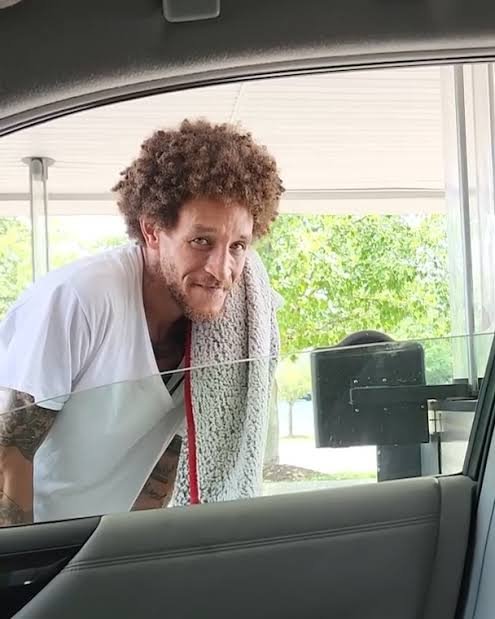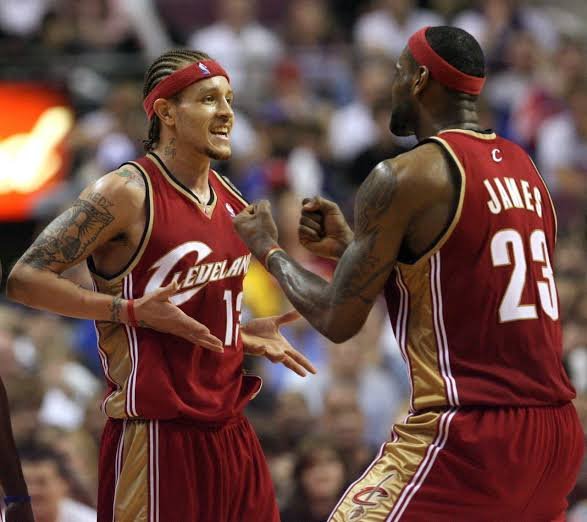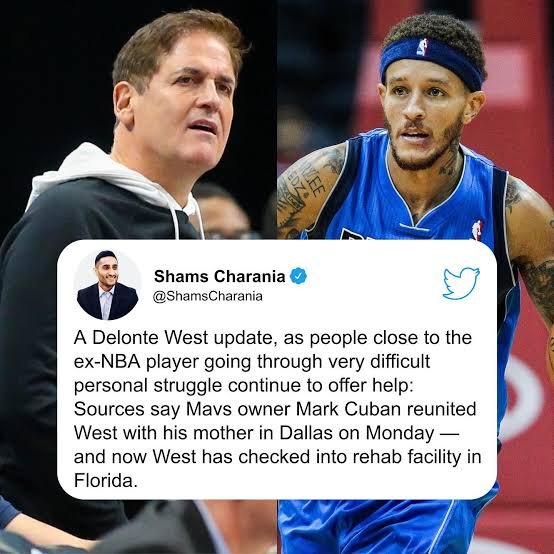From NBA Star to Homelessness: The Story of Delonte West – A Cautionary Tale on Mental Health and Support


In professional sports, success is often measured in championships and contracts. But the story of Delonte West offers a sobering reminder that fame and fortune don’t protect one from personal demons. His journey from the NBA spotlight to living on the streets reflects deeper issues surrounding mental health, financial literacy, and post-career support for athletes.
Rising Star: The NBA Dream
Delonte West shined early at Saint Joseph’s University, forming one of the NCAA’s most dynamic backcourts with Jameer Nelson. In 2004, he was drafted 24th overall by the Boston Celtics. Over the years, he played for the Celtics, SuperSonics, Cavaliers, and Mavericks, with a key role beside LeBron James during his time in Cleveland.
At his peak, West was a reliable, tough competitor, respected for his basketball IQ, hustle, and leadership on the court.

Hidden Battles: Living with Bipolar Disorder
In 2008, Delonte West publicly revealed he had been diagnosed with bipolar disorder. While praised for his transparency, the stigmas surrounding mental health, especially in the macho world of professional sports, often left him without consistent support.
Despite his success, West struggled with mood swings, depression, and off-court challenges. His behavior sometimes appeared erratic, leading to suspensions and a slow decline in playing opportunities.
The Fall: Homelessness and Public Concern
After his final NBA game in 2012 and brief overseas stints, West’s life spiraled. In the following years, distressing photos and videos surfaced showing him homeless, panhandling, and appearing mentally unwell.
These viral images sparked outrage, confusion, and sympathy. Many fans couldn’t believe that a former NBA player, who had once earned millions, was now living on the streets, seemingly abandoned by the league and society.
A Helping Hand: Mark Cuban and Rehabilitation

Source - 29 September 2020
In 2020, Dallas Mavericks owner Mark Cuban personally intervened, helping West enter rehab. Cuban even picked him up from a gas station and covered his treatment costs. After rehab, West was reportedly doing better and even worked at the facility that helped him recover.
But addiction and mental illness are not one-time fixes. There have been further troubling updates, proving that consistent, long-term care is essential.
Lessons We Must Learn
Delonte West’s story is not just about a fallen athlete—it’s a human story, and one with important takeaways:
• Mental health matters - regardless of fame or fortune.
• Support systems must continue beyond retirement.
• Compassion is more powerful than criticism.
It’s time for sports leagues, fans, and communities to invest more in long-term mental health care and financial planning for players not just while they’re in the limelight, but after the applause fades.
Conclusion
Delonte West’s journey is heartbreaking, but it’s also a call to action. Let his story spark more awareness, more empathy, and a stronger commitment to caring for one another on and off the court.
Delonte West’s story is a powerful reminder that fame and talent don’t shield anyone from mental health struggles or life’s challenges. It’s easy to cheer for athletes when they’re winning—but the real test of our humanity is how we support them when the spotlight fades. His journey should absolutely push us to build better systems of care, break the stigma around mental illness, and show compassion, not just as fans, but as people.
You received an upvote ecency
Thanks
Congratulations @emudongefr! You have completed the following achievement on the Hive blockchain And have been rewarded with New badge(s)
Your next target is to reach 300 upvotes.
You can view your badges on your board and compare yourself to others in the Ranking
If you no longer want to receive notifications, reply to this comment with the word
STOP